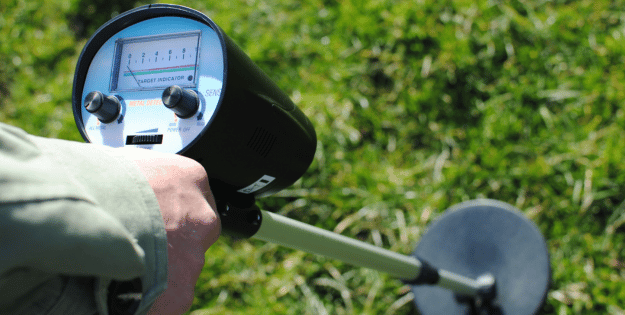Metal detecting has become a popular pastime for those seeking adventure and hidden treasures beneath the earth’s surface. Whether exploring historical sites or searching for gold nuggets, having the right metal detector is crucial for success. With a range of options available, from advanced models to user-friendly designs, there’s a detector to suit every skill level.
For beginners, ease of use is essential, while seasoned detectorists might prioritise advanced features and versatility. The best metal detectors combine these elements, offering something for everyone. From waterproof designs to those specialising in relic hunting, each detector brings unique capabilities to the table.
Choosing the right metal detector can enhance the thrill of discovery, turning a simple hobby into an exciting journey. As technology advances, modern detectors offer improved sensitivity and frequency adjustments, ensuring that no treasure goes unfound. With the right equipment, the world of metal detecting is yours to explore.
Top Amazon Sellers
Key Takeaways
- Metal detectors cater to diverse needs, from beginner models emphasising ease of use to advanced versions with specialised features for seasoned users.
- Understanding core features like frequency range, coil size, and ground balance is crucial in selecting a detector suited for specific activities such as beach combing, relic hunting, or gold detecting.
- It’s essential to choose metal detectors based on their intended environment, with options available for underwater searches and environments with mineral interference.
- Compliance with legal and ethical guidelines is vital for responsible metal detecting, ensuring respect for private and historical sites and upholding environmental considerations.
- Supplemental accessories like pinpointers, trowels, and noise-cancelling headphones can enhance detecting efficiency and the overall treasure hunting experience.
Understanding Metal Detectors
Metal detectors use varying frequencies to identify different types of metals. Lower frequencies, around 3 to 5 kHz, penetrate deeper soil but respond well to larger targets. Higher frequencies, typically 18 kHz, are effective for smaller objects but have less depth. Multi-frequency models combine these advantages, adjusting sensitivity to a wide range of targets.
Ground balance functionality improves detection features by counteracting mineral interference common in wet sand and mineralised soil. High-end detectors offer adjustable ground balance, essential for beach and gold prospecting. Audio signals, instead of visual displays, are often used in detectors meant for water use to prevent leakage. Identifying the best metal detectors depends on the intended usage, from underwater activities to relic hunting.
Key Features to Consider
Selecting the best metal detectors involves assessing several key features to enhance search success and efficiency.
Frequency Range
Frequency range affects a detector’s ability to identify various metals. Lower frequencies excel at detecting large, deep targets, while higher frequencies suit small objects. Multi-frequency detectors can adjust to diverse targets and environments, providing flexible performance for different search conditions.
Coil Size and Type
Coil size and type significantly influence detection depth and target sensitivity. Larger coils, due to their dimensions, reach deeper but may be less effective for small objects. Concentric and Double-D coils serve different purposes; concentric coils offer precise pinpointing, while Double-D coils handle mineralised soil with ease.
Ground Balance
Ground balance enhances detection by adjusting for mineral interference, crucial for using metal detectors in varied terrains. Manually adjustable ground balance offers an advantage in challenging environments, like beach and gold prospecting, by ensuring accurate detection despite soil mineralisation.
Best Metal Detectors for Different Needs
Choosing the best metal detectors depends on the intended activity. Different models cater to specific contexts, making it vital to align the detector’s features with your objectives.
Starter Metal Detectors
For beginners, seek detectors known for ease of use and intuitive operation. These models often include user-friendly interfaces and essential features like target identification to simplify the detection process. Such detectors strike a balance between cost-effectiveness and functionality, making them ideal for entry-level enthusiasts.
Beach Metal Detectors
Beach metal detectors excel in handling salty environments and wet sand. They utilise special frequency settings and waterproof designs to improve performance on coastal terrains. These detectors frequently feature advanced ground balance systems to counteract mineral interference and ensure accurate detection along the shoreline.
Relic Hunting Detectors
Relic-hunting detectors prioritise depth and precision to locate historical artefacts. These models often have larger search coils and adjust frequencies to penetrate deeper soil layers effectively. Discrimination control helps in identifying target types amidst mixed terrain, thus enhancing success in uncovering buried relics.
Tips for Metal Detecting Success
Effective metal detecting combines skill, strategy and the right tools. Following best practices increases the likelihood of discovering valuable finds.
Choosing the Right Location
Select areas with historical significance or known treasure deposits for higher success rates. Parks, old battlefields and beaches often harbour hidden items. Seasoned detectorists recommend research into local history and past events to identify promising sites.
Techniques and Tips
Adjust detector settings based on soil conditions and target types for optimal performance. Use slow, overlapping sweeps to ensure thorough coverage. Experienced users suggest varying search patterns, such as gridding, to methodically explore areas and improve the chance of finding items.
Legal and Ethical Considerations
Metal detecting involves several legal and ethical responsibilities. Detectorists must comply with local laws, which govern areas where detecting is permitted. Public land often requires permission or a permit, while private land necessitates owner consent. The recovery of artefacts can be subject to national heritage statutes, especially in areas with historical significance.
Ethically, users should respect the environment, filling any holes and ensuring minimal disruption. They must also report significant finds to authorities, preserving historical and cultural integrity. Adhering to these guidelines not only ensures the lawful use of metal detectors but also upholds the community’s reputation, fostering positive public perception of this hobby.
Helpful Accessories
Enhancing the metal detecting experience involves using suitable accessories. Pinpointers help in accurately locating targets once general areas are identified by the primary detector. It reduces digging time and increases efficiency. Trowels and digging tools, made of durable materials like stainless steel, facilitate accurate recovery of found objects. Headphones, especially noise-cancelling models, enhance sound clarity and help concentrate on subtle audio signals from the metal detector. Carry bags protect equipment during transit and allow easy portability. Additionally, sand scoops are crucial for beach detecting, aiding in quickly sifting through sand to retrieve items efficiently. Investing in these accessories maximises potential when using the best metal detectors, ultimately enhancing success and enjoyment in the field.
Conclusion and Top Picks
Metal detecting offers a thrilling blend of adventure and discovery for enthusiasts of all levels. Choosing the right detector is crucial, with options ranging from beginner-friendly models to advanced devices with cutting-edge features. Whether it’s beachcombing, relic hunting, or gold prospecting, the best metal detector aligns with the user’s specific needs and environments. By considering factors like frequency range, coil type, and ground balance, detectorists can enhance their search success and efficiency. Adhering to legal and ethical guidelines ensures responsible detecting, while investing in useful accessories further enriches the experience. Embracing these insights allows hobbyists to fully enjoy the exciting world of metal detecting.
Frequently Asked Questions
How do metal detectors work?
Metal detectors operate using electromagnetic fields to identify different types of metals. They emit frequencies that react with metal objects in the ground, producing a signal. Lower frequencies penetrate deeper soil for larger targets, while higher frequencies are better for smaller items. Multi-frequency models combine these capabilities, offering flexibility in detecting various metal types at different depths.
What should beginners consider when choosing a metal detector?
Beginners should opt for user-friendly metal detectors that balance cost-effectiveness with essential features like target identification and sensitivity adjustment. It’s crucial to select a model that is simple to use and offers enough functionality to keep the experience enjoyable and rewarding.
Why is ground balance important in metal detecting?
Ground balance is essential because it helps prevent mineral interference, which can affect detection accuracy. It adjusts the detector to ignore signals from minerals in the soil, enhancing effectiveness, especially in challenging terrains like wet sand or mineralised land. This is crucial for activities such as beachcombing and gold prospecting.
What are the benefits of multi-frequency metal detectors?
Multi-frequency metal detectors offer the advantage of adjusting sensitivity for a wide range of targets and environments. They combine the depth capabilities of lower frequencies with the precision of higher frequencies, making them versatile tools suitable for detecting both small and large metal objects effectively in various conditions.
How does coil type affect metal detecting?
Coil type influences detection depth and precision. Larger coils cover more area and detect deeper targets but may miss small objects. Concentric coils provide accurate pinpointing, while Double-D coils are effective in mineralised soil, balancing depth with precision. Choosing the right coil type enhances search efficiency.
What legal considerations should detectorists be aware of?
Detectorists must comply with local laws and regulations. Permission or permits are often required for public land, and private landowners’ consent is necessary. Respecting the environment by filling holes and minimising disruption is important. Reporting significant finds helps preserve historical integrity and ensures a positive hobbyist reputation.
Are waterproof metal detectors essential for beach detecting?
Yes, waterproof metal detectors are essential for beach detecting as they can handle salty environments and wet sand effectively. They prevent damage from water exposure and often feature advanced ground balance to maintain performance. Waterproof models ensure reliability and durability in coastal or watery conditions.












